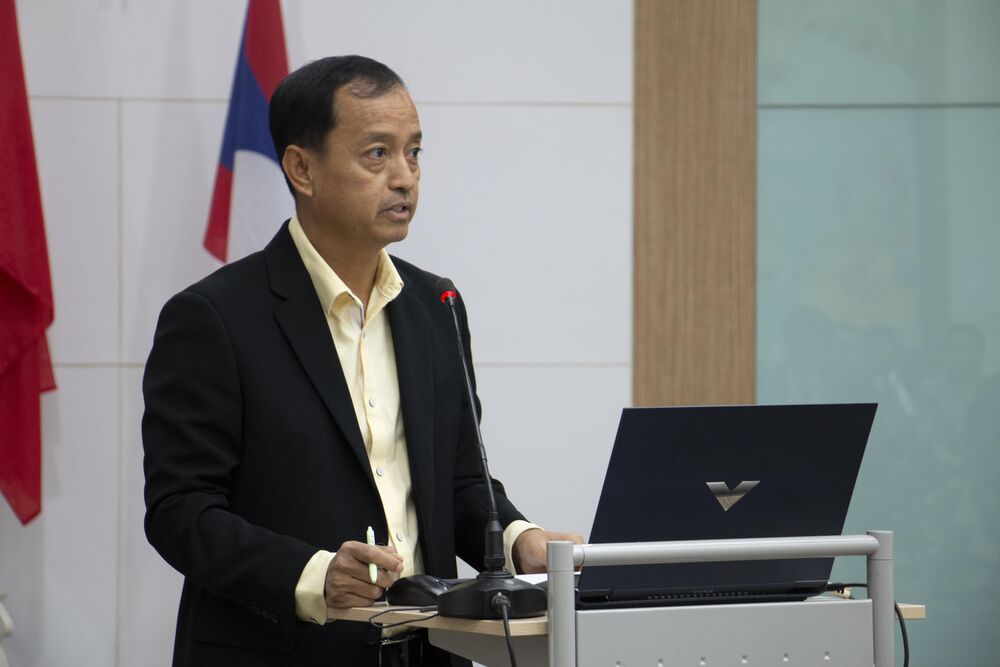Mekong Institute (MI), with support from the People’s Government of Yunnan Province, China, successfully organized the Regional Training Program on Comprehensive Human Resource Development (HRD) for the Lancang-Mekong Cooperation from June 26 to July 7, 2023, in two cities in Thailand – Khon Kaen and Bangkok. The program aimed to empower government officials in the region with advanced HRD skills and wider regional perspectives and networks, enabling them to competently navigate the ever-changing regional and global landscape.
The Lancang-Mekong (LM) region has experienced significant economic growth. However, limited human resource capacity, among several issues and challenges, continues to hinder the region’s convergence development.
“Human resource development is a key tool in stirring economic growth and reducing the development gap among Lancang-Mekong countries. After the pandemic, education and employment tended to require more resilience and adaptability,” said Mr. Rithy Buth, MI’s Director for Finance and Operations, during the training’s opening ceremony.
Recognizing the crucial role of an empowered and capable workforce in driving socio-economic expansion, MI designed the training program to actively engage LM countries to help enhance their human capital. The training program welcomed 25 government officials from LM member countries who gathered for two weeks to enhance their knowledge and skills on essential aspects of HRD.
The program covered four modules drawn from and tailored to the specific context of the LM region. The first week commenced with constructive and practical sessions on professional communication, led by Dr. Matthew R. Ferguson, Director of Mahidol University International College. Participants engaged in group discussions and presentations to gain knowledge of cross-cultural communication.
During the second week, participants delved into human resource development, understanding its crucial role in boosting regional economic growth. The program provided theoretical lectures and case studies to enhance participants’ understanding of the subject matter.
As part of the comprehensive training, MI arranged structured learning visits in Khon Kaen and Bangkok, including institutions such as the Bank of Thailand (Northeastern Region Office), Board of Investment (Northeastern Region), RABIF-BEEFC Project, Eastern Economic Corridor Office (EECO), and Thailand Science Park (TSP).
The training program concluded with a closing ceremony held at Sukosol Hotel in Bangkok on July 7, 2023. Participants showcased their knowledge and skills through their final presentations, reflecting the valuable insights gained from the training.








